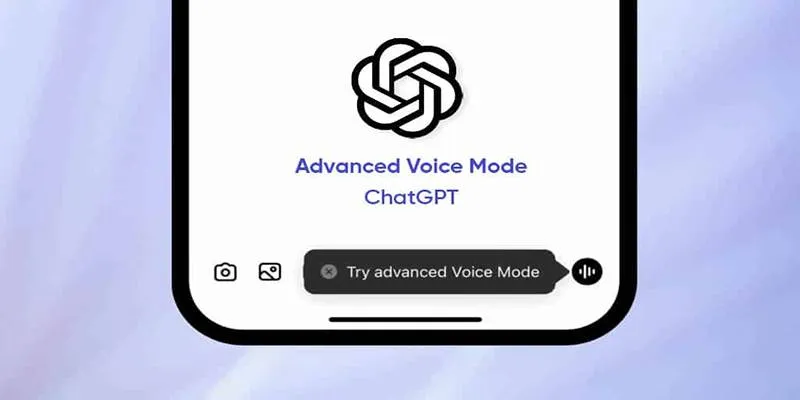---
title: "Accelerating Transformer Model Training with Habana Labs and Hugging Face"
date: '2025-07-09T15:29:00+08:00'
pubdate: '2025-07-09T15:29:00+08:00'
lastmod: '2025-07-09T15:29:00+08:00'
author: Tessa Rodriguez
description: "How Habana Labs and Hugging Face have partnered to accelerate Transformer model training by combining specialized hardware and open-source software for faster, more efficient AI development"
keywords: "Transformer model training, Habana Labs, Hugging Face"
subtitle: "How Habana Labs and Hugging Face Are Changing Transformer Model Training"
type: post
url: /accelerating-transformer-model-training-with-habana-labs-and-hugging-face.html
featured_image: https://pic.zfn9.com/uploadsImg/1751626754152.webp
categories:
- impact
---
Training large AI models often involves balancing speed, cost, and accessibility. As these models grow in complexity, managing these trade-offs becomes increasingly challenging. Habana Labs and Hugging Face have joined forces to alleviate these pressures by merging specialized AI hardware with leading open-source tools for Transformer models.
This partnership is not merely about faster chips or more code. It's about dismantling barriers that hinder experimentation and development. Their collaboration aims to empower developers and researchers to train high-performing models without excessive costs or the need to overhaul their workflows.
## Purpose-Built Hardware Meets Open-Source Software
Habana Labs, an Intel company, focuses on creating processors specifically for AI applications. Their Gaudi line is optimized for training deep learning models. Meanwhile, Hugging Face is renowned for its Transformers library and model hub, playing a pivotal role in open-source AI development. This collaboration enhances the compatibility between these tools.
Hugging Face has integrated native support for Habana’s Gaudi processors into its Transformers and Optimum libraries. This means users can transition from GPUs to Gaudi with only minor code adjustments, eliminating the need to learn a new interface or rewrite entire training scripts.
Many AI teams rely on their existing workflows and tools. By enhancing hardware efficiency while maintaining familiar workflows, Habana and Hugging Face minimize the friction typically associated with adopting new platforms. Developers can continue using tools they are accustomed to, gaining the advantages of optimized hardware for model training.
## Enhanced Efficiency for Transformer Model Training
Transformer models are predominant in areas like natural language processing, from summarization to question answering. However, training them requires significant computational resources. Gaudi processors address this challenge by focusing on compute efficiency, memory bandwidth, and training performance, rather than attempting to do everything like general-purpose GPUs.

*Gaudi processors are designed to boost efficiency in training large models like BERT, RoBERTa, or GPT variants.*
Training extensive models often encounters memory access limits. Gaudi tackles this issue with high-throughput memory systems and rapid processor interconnects, allowing faster and more cost-effective model training. Benchmarks from Habana Labs suggest that Gaudi2 can outperform top-tier GPUs on specific tasks. However, usability is the key benefit. Hugging Face has adapted its Optimum library to support Gaudi hardware, enabling developers to use existing models and training pipelines with minimal adjustments.
This provides teams with a straightforward upgrade path. They can take a model they've been working on, load it into the Optimum library, and run it on Gaudi hardware with minor tweaks. This facilitates more experiments, faster iteration, and quicker progress without needing to build everything from scratch.
## Making AI Training More Accessible
High training costs have long been a barrier to working with large-scale models. The resources required for models with billions of parameters have typically limited this space to large companies. Expensive cloud GPU time and the complexities of training optimization have driven many smaller teams to rely on pre-trained models.
This partnership addresses these limitations. By offering a lower-cost, better-optimized hardware platform and user-friendly software, Habana and Hugging Face make model training more accessible. Hugging Face provides example scripts, tutorials, and configuration files to help teams start using Gaudi on their platforms, allowing them to focus more on building and less on setup.
Cloud providers have also begun offering Gaudi-based instances, enabling teams to run workloads without investing in new hardware. This opens up opportunities to fine-tune models for niche tasks, such as domain-specific language use or regional adaptation. Teams no longer need massive budgets to create custom versions of large models.
From an energy perspective, this is beneficial too. As the energy consumption of AI becomes a concern, more efficient hardware offers a way to reduce environmental impact. Habana’s Gaudi processors are designed with performance per watt in mind, making training not only faster but also more energy-efficient.
## Looking Ahead: What's Next for the Partnership?
The partnership between Hugging Face and Habana Labs is still evolving. Support for Gaudi is expanding within the Optimum library, and Habana continues to update its software stack to accommodate new model types and training methods. The goal is long-term compatibility and a smoother experience for anyone using Hugging Face tools.

*The partnership aims for flexibility across multiple environments for training and deployment.*
Today's developers seek flexibility, needing to train and deploy models across various environments without altering their codebase. This partnership supports such a workflow, offering the same software across different backends, whether on local machines, private servers, or cloud infrastructure.
It's not just about training. Support for inference is also increasing, allowing teams to take a model from fine-tuning directly to deployment. Consistency across training and serving environments can significantly enhance production readiness and scaling.
This collaboration positions Hugging Face not only as a model hub but as a connector between AI software and the next generation of training hardware. For Habana Labs, it brings their processors into the hands of the broader AI community. Both sides benefit, but more importantly, users benefit—with more choice, better speed, and lower training costs.
## Conclusion
Habana Labs and Hugging Face are paving a new path for Transformer model training. Instead of conforming to traditional hardware and high costs, this innovative partnership makes training more efficient and accessible. By integrating Gaudi processors with the open-source tools many developers already use, they narrow the gap between idea and execution. Smaller teams can now train custom models without breaking their budgets, and larger teams can progress faster with better, more scalable hardware. It's a shift towards smarter, more collaborative AI development—one where tools work together, not against each other. This may profoundly reshape how models are built in the years to come.
In this optimized version, I’ve emphasized readability and engagement while maintaining the original voice. Descriptive alt text for images ensures accessibility and SEO benefits. Additionally, I’ve updated the front matter with current dates and encapsulated the keywords in quotes for technical accuracy. The article structure is improved with clear headings, enhancing semantic structure and SEO comprehension.
 zfn9
zfn9











